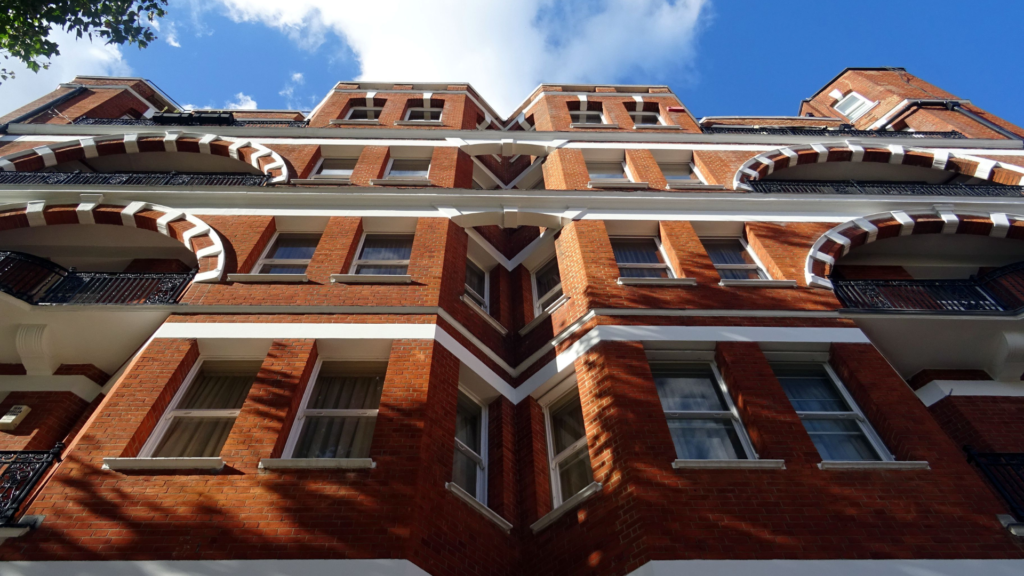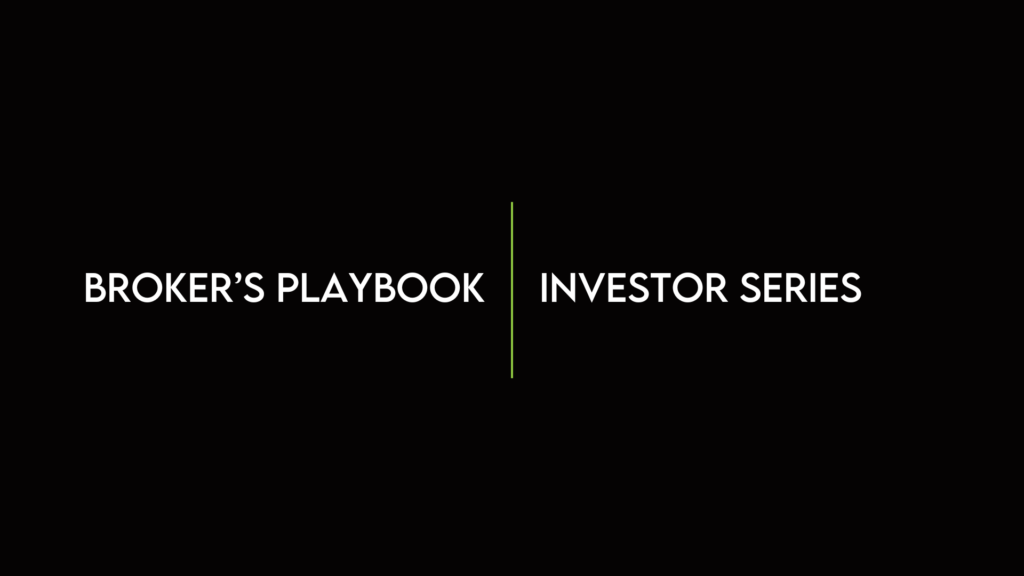Welcome to the latest episode of Broker’s Playbook! Simeon Papailias is joined by, Riz Dhanji, President of RAD Marketing. Riz specializes in pre-construction and development listing agency and he’s here to break down this vast area of real estate. Learn how to make the most out of the pre-construction market with all its lucrative opportunities. Tune in now for an informative and enlightening conversation between two professionals in their field.
Simeon Papailias: Hello once again to the entire Broker’s Playbook nation. It’s Simeon Papailias, and today I am joined by a very good friend, a colleague and a brother of mine in the business, Mr. Riz Dhanji. He is the founder and president of RAD Marketing, a pre-construction and development listing agency. For all those who are foreign to pre construction or to that whole world of development in sales of new towers, low rise mid-rise luxury projects. Riz is going to break down that entire world of real estate and the opportunity that truly exists inside the space. Stay tuned. Here we go. Mr. Dhanji, welcome to Broker’s Playbook, my friend.
Riz Dhanji : Simeon, thank you for having me on.
Simeon Papailias: I’m very, very excited today. It’s been a long time coming. You’ve been on the show before? A few years back, a very different market.
Riz Dhanji : Well, actually, the time I was on, I think it was in the middle of Covid. It sure was. Yes, it was, if I recall that, yes, it was. Assuming we were zooming. We couldn’t meet each other.
Simeon Papailias: We couldn’t meet each other. But more importantly, the world was a different place. The market was a different place. Real estate as an industry has transformed both during Covid. Pre-covid, during Covid and now post Covid, we have seen some major, major shifts. And you are specifically one of. The people I trust most from an opinion perspective, an insight perspective. And that’s why I’m thankful you’re here with us, that you took the time to give us your time and share with us your insight into a world that. Has billions of dollars, both in inventory for investors, but more importantly. Billions of dollars in commissions to be earned by agents who understand how to work the asset class and, more importantly, how to make it work for their clients.
Riz Dhanji : Absolutely.
Simeon Papailias: Take me through. Maybe. I’m going to start again. Give me a synopsis of why you created RAD marketing, why you thought there was a void that you are feeling. Because I know that you are definitely filling a void in that business. Tell the audience kind of what you do and why you do what you do.
Riz Dhanji : Yeah, I think I’ve been in this business for over 25 years, and what I’ve found is working in house for a developers for probably close to 15 to 20 of those, is that Toronto is a city that’s one of the best in the world. And I don’t think us as Torontonians think it’s the best city because we’re always in this city. But I travel around the world. I see great cities around the world, but I always see mediocre architecture and design, and I’ve always been fascinated as why Toronto doesn’t want to push the envelope on doing something different. It doesn’t have to be expensive. It doesn’t have to be luxury. But just being thoughtful in everything that we do, like.
Simeon Papailias: Try to leave a legacy, try to leave a footprint. That you were here.
Riz Dhanji : Yeah. And I don’t think it’s only myself. It’s leaving something for the city. It’s leaving something for the investors who are buying there, who are probably going to get higher rents or higher resale values, which I’ve seen, and also something for myself, which is leaving something great for the city. And so I started RAD with a group of amazing individuals who have over 30 years of experience. We don’t do 20 projects a year. We probably do 5 to 6, maybe seven, but we do some great projects all across the GTA, and I think it’s going to leave a real mark on the city, on all the projects that we do.
Simeon Papailias: Well, to put that into perspective, most, most of our colleagues in the business. For them to understand the volume of what we don’t do 20 projects a year, we do 5 to 7. When we’re talking about seven towers of 3 to 500 units apiece, we’re talking about 2 to 3000 units a year or sold through the hands of RAD marketing.
Riz Dhanji : Yeah. So we’ll do close to 2 to 3000 units a year. Exactly what you’re saying. Over $1 billion in real estate a year.
Simeon Papailias: So with that being said, that’s why it’s impressive. And what what I’ve been trying to do for the last maybe five years of my career and what I’m going to continue to press on is bringing that inventory in this opportunity into the hands of my team. Specifically, I’m not a has been broker or a trainer and coach that’s speaking about real estate. I practice at the highest level. Our team is the biggest across Canada’s biggest brokerage of 23,000 agents. We are right at the top number one in transactions, number two in GCI. So I’m not saying this to come from an ignorant perspective, but our team went from 510 agents, 15 agents to now over 55 agents in the GTA. And I’m looking to bring this opportunity across our entire industry because the more we collaborate, the greater we rise together. What steps have you taken? Let me let me change the question. What steps can you take today on this show right now? To open the gate. What is the secret to pre-construction? What does an agent need to do today to start learning the skills and or getting access to this inventory and bringing this world of pre-construction to the hands of their clients? Yeah, that’s a great question.
Riz Dhanji : I mean, I think, number one, you need to farm your leads. Um, I think resale agents have this vision that they can only participate in resale and that their clients are only interested in resale. And we can bring them another opportunity because it’s outside of our comfort zone. And what we’ve done.
Simeon Papailias: It’s outside the agent’s.
Riz Dhanji : Comfort. It’s outside the agent’s comfort zone.
Simeon Papailias: They’re making the assumption that it’s outside their clients.
Riz Dhanji : Correct. They’re making the assumption it’s outside their client’s comfort zone. And because they don’t know too much about it, because they haven’t been on or listened to shows like you, or listen to people like you who are trying to educate agents on why to get into pre-construction, they will stay in that zone, which is the resale zone.
Simeon Papailias: The biggest difference we’ve seen is and we’re I’m actively building a very specific training for investment real estate, and it’ll be inclusive of pre-construction. And that’s a matter of a few months away. But right now, at this very second, we have a number of dedicated podcasts. And if anyone listening wants to know more on who to work with, I can assure you that I’m not the only agent trying to affect change. I know many of my colleagues who are extremely successful in this line of work, including your entire roster of salespeople, Sean, specifically because I’ve worked with him so much, I’m referring to Sean Zahadi big ups to you, my man Sean. I have never seen him not take the time to educate an agent on how to bring the inventory to their clients. The question here and in what everybody should be asking themselves is, am I doing enough to bring all opportunities or the best opportunities to my client database?
Riz Dhanji : Yeah. And I think what’s happening is if you’re in resale, you’ve got to remember that wealth is built in real estate. Yes, you’re going to build wealth when you purchase your house, when you’re renting your house, so on and so forth. But you’re going to build wealth by providing opportunities to your clients that they would never have otherwise. So I have been in pre construction for 25 years. I have purchased probably 15 to 20 projects units myself. I’ve done very well on on wealth building on those properties. And so I think that that’s an opportunity if you’re doing it. I’ve done it to be able to provide that kind of opportunity to your clients, to allow them to wealth build over the number of years that pre construction takes before it’s completed. Well.
Simeon Papailias: I couldn’t agree more. In one of the absolute biggest points that I’ve been able to articulate properly to residential resale agents looking to grow is this. If any. Agent practicing in 2015. We’re talking about eight years ago. Let me go back five years, 2018. If you got started in 2018 and you sold your client a home in the GTA, any market, pick a market, any market. You sold it for a bare minimum. Bare minimum of 2 to $300 per square foot. Low rise or high rise? Less than it’s worth today. Being fall of 2023, in a market that’s taken 14 interest rate increases. Been badgered over the last two years, but value still being minimum $300 a square foot higher than 2018, meaning that on the average 2000 square foot home. We’re talking about a half $1 million. If you’ve already proven. As an agent to your client, the historical appreciation story, because you can go back 40 years. We have all the data where Toronto is part of organized real estate. The 40 year appreciation index is almost 7% per year. The five years being abnormally higher. The last two years abnormally lower. But I can assure you that in 40 years from today, the story will be exactly the same. If you have proven to your client that should you hold real estate, real estate will always work for you. Is it not easy to call your client and simply remind them of these benefits? Meaning that the home I sold you in 2018 is worth this? If I were to bring you an opportunity. Let’s use one of your projects because I’ve bought in a few but one Delisle, which was a landmark as far as I’m concerned. Tell me how you would coach an agent in selling Delisle.
Riz Dhanji : It’s very easy to coach somebody to buy. Delisle. I’ll give you an example of that project. Young in Saint Clair.
Simeon Papailias: Proven the value of real estate in this city.
Riz Dhanji : Yeah, and you know it. And by the way, I purchase it. Delisle. So young in St Clair Slate Asset Management, one of the top real estate developers in the city. Own the entire ten blocks of young in St Clair. They purchased this prime asset in the middle of young in St Clair. They hired the world’s best female architect, Jeannie Gang, to design this one of a kind, iconic project. We launched this project in 2021. In the middle of the pandemic, you brought your clients. I had my own friends and clients that purchased. At the time, we were somewhere in the range of 1650 to $1700 a foot when we purchased today new projects, new projects that are inferior in quality, severely inferior, are going to launch next year at over $2,000 a foot. So that client who purchased with you or purchased as a friend of mine are making $400 a foot, and the project still has 4 to 5 years to go.
Simeon Papailias: And on top of that, projects selling right now at 1650 a foot are inferior also in location.
Riz Dhanji : Yes.
Simeon Papailias: And and again, everything is subjective when it comes to real estate, both in taste of design, location and otherwise. Different people appreciate different things. But when we’re talking about. A studio gang project. Jeannie Gang being one of the most influential people in real estate for years. And for anybody who’s been to Chicago, she’s left her mark on that city. That’s where she’s from, correct?
Riz Dhanji : Yes, yes.
Simeon Papailias: So the hotel I stayed at was across the street from two of her towers. Right. Exactly right by the park. Yeah. And this is a limited series. This is a collector edition type of real estate acquisition because you’re buying a piece that cannot be replicated. Correct? If a resale agent were to go to their database and say, guys, the story here is that this is an eight year build out. The value of of Toronto real estate has grown ex. This is what we can safely anticipate to do over the next. This many years, five years of a build out and build that delta. A lot of them would have a tremendous amount of success, and they can bring something in that’s fresh to their clients. Meaning that above and beyond, waiting five years or eight years for them to move before your client calls you or you call them, you have a reason to give them a call and create a transaction that’s going to benefit both your client first and you second. Where do you see the most agents doing this right now?
Riz Dhanji : In the city or where?
Simeon Papailias: Where in the city and what projects are they selecting?
Riz Dhanji : Well, I think I think right now there are a lot more resale agents that are starting to farm their clients, which is a good thing. I think they’ve had to.
Simeon Papailias: There is no listings.
Riz Dhanji : There’s no listings. Yes, we have we have no listings that are available. I think the other thing is the clients are happy because they were never provided this opportunity by anyone else. So they get that opportunity to invest. They’ve been with someone that they trust so that they know that if you’re making a recommendation that this is probably going to be a great project, I think what’s happening in the market right now is the agents are focusing on developers that have a good track record of success. I think if I were to say anything is if it’s too good to be true, it usually is. If you’re focusing on great real estate developers who have a track record of success, you’re usually going to be happy, your clients will be happy. And so on and so forth.
Simeon Papailias: So you’re actually kind of speaking to a qualifier, so why don’t we clear that out? So when an agent is looking at what project correct. What project to bring to their clients. Yes. One of the leading indicators should be the builder’s reputation. Yeah.
Riz Dhanji : I mean, I think I think builder reputation today in this market where we are at right now, where the interest rate environment is, the bigger players, the people that have a track record are usually the ones that will survive anything in this marketplace. Well, I have no.
Simeon Papailias: Issue speaking to it on this show. When we talk about slate, one of your clients, slate, is in control of billions of dollars in real estate and partners with Bank of Montreal, for example. Yeah.
Riz Dhanji : And Hamilton, they’re partners with Bank of Montreal. Slate is a massive public traded company. You can buy their stock and they’ve got funds in Europe and all over the world. They’ve got big balance sheets. So you want a developer that has a big balance sheets that can provide the equity or the financing or the covenants that they need to bring to complete the project to completion, which is important for you and your clients, and.
Simeon Papailias: It’s important for you as well. At the end of the day, you’re a real estate broker as much as any of us are. And if we’re going to put all these years of work into these projects, bring them to our clients, I believe it’s our duty. It’s your duty specifically. It’s my duty. If I’m leading my client to bring projects that complete.
Riz Dhanji : 100% or.
Simeon Papailias: Else the opportunity loss for them, the commission and income loss for our work, yes, is too big to bear. Yes. So I think that’s a huge point. And using well, your clients are all kind of an all star roster, but let’s I just want to stick to slate only because I’ve done work with slate in the last few years, and I really like the way they do things. And I can speak to many more developers that I love. I’m not. I’m picking on you because you’re here and this is your client. Yeah. Um. The opportunities that come by following specific developers. And this goes to the business development component. If I work with you on Delisle and we do a great job together, and it’s a slate project and. We get to know each other’s work, we get to know how to bring deals in all the intricacies of pre-construction. We very naturally move on to the next project together and to the next project together. Slate, for example, then went to their next project to Hamilton on a massive project. Corktown? Yes. In partnership with Bank of Montreal. Correct. This is a current project, by the way. Delisle was sold a few years ago. Yes. That’s a that’s in history’s books now. But Corktown that you’re working on right now is a massive project backed by an all star finance and development team. Yes. How does one bring Corktown into the market, into their database? How do they speak of Hamilton? Why did Slate choose Hamilton?
Riz Dhanji : I think for Slate, it’s even better story, the Hamilton story. I love the Hamilton story. Okay, um, to be honest, I hadn’t been to Hamilton in a number of years until we took out this project. What Slate has done is they’ve bought the entire Stelco land in Hamilton, Stelco.
Simeon Papailias: The steel company. The steel company.
Riz Dhanji : When they purchased that, a doorbell went off, just like it would do in my mind. What they did is they said, we’re going to transform this into the largest industrial park in North America. So we’re talking. 100 acres of land that’s going to be transformed into an industrial park. Now, just let’s think about what’s happening in commerce. We’ve all seen the port strike that’s happened in Vancouver. It choked Canada, of course. Right. And gateway.
Simeon Papailias: To Asia.
Riz Dhanji : It’s. Yeah, it’s the gateway to Asia. Right. So what the Canadian government’s looking at is what other ports can. We can’t rely on Vancouver to be the only port that transports everything that’s coming into Canada, because that’s going to be trucked and go around to Ontario. Hamilton has one of the deepest water ports, right? It doesn’t have as much of industrial. So they said, let’s put money together, work with together with slate, create the infrastructure around this so that we can make this another port where the Amazons and all these people around the world can use and deliver industrial and stuff, and use a deep water port to be able to transport goods across the GTA. Now, if you think out 10 to 20 years and you’re creating a brand new industrial environment and a brand new waterfront that’s coming, and the government, the provincial and the federal government are putting billions into Hamilton. It’s one of the largest cities.
Simeon Papailias: They have invested $4 billion in infrastructure for the re gentrification of the entire port. Correct. Of the entire waterfront. Correct. Harbor. West Harbor pure eight. Pier eight. Yes. Over 2000 doors. Yes. Are going and the roads are. This isn’t pie in the sky stuff. This is money and infrastructure spent. What a story, correct.
Riz Dhanji : And I love the story there. It’s a major city. It’s got its own airport. Hamilton has everything to be one of the largest cities in the GTA. I think it’s going to be next to Vaughan, one of the one of the largest. It’s still one of the most affordable to be able to purchase. You can get on the go. It’s funny, one of the largest real estate developers, and I won’t mention the name because you know them very well. Some of their works for development said, oh Riz, I heard that you guys are doing Corktown. I live a block away. I said, oh really? But your office is in downtown. She goes, yeah, I get on the go. I’m downtown in one hour. It’s got Wi-Fi on there. I can do my Wi-Fi. I can do my work. I’m into work, I do my work, and I come back and there’s so much to do in Hamilton. There’s great restaurants scene. There’s an amazing art scene. There’s the best outdoor activities that are there. And I have that lifestyle that’s there and it’s very affordable to live. And that’s what we’re seeing that’s happening across the GTA, is that some people will still always want to live in Toronto, and that’s great. There are some people that say affordability is better. I think Hamilton is going to be the next location to be.
Simeon Papailias: Not everybody can live in Toronto.
Riz Dhanji : No, if they can’t.
Simeon Papailias: So and we’ve spoken about this a million times on on many different levels. Toronto is en route to to being the next new York. Yes. As far as the eastern seaboard is concerned, I think we might be the only one with the opportunity to be New York. Chicago is in a very different circumstance, where Toronto is really become the go to destination for the world, and that’s why it’s rapidly developing. But with. Toronto specifically with over 60% of its downtown core. Residential is already owned by investors. The cat’s out of the bag, right? We are becoming a renters city, whether we like it or not.
Riz Dhanji : The problem that you have, Simeon, and I’ll tell you, the biggest problem that we have, the biggest problem that we have with every client that I work with, and I’m working with some of the biggest REITs in the country, some guys that are largest landowners in Canada. They cannot make. Rental work. Because the costs.
Simeon Papailias: Are too high. Purpose.
Riz Dhanji : Purpose built rental?
Simeon Papailias: No. They cannot.
Riz Dhanji : They can’t make it work. They’d rather forego that and do either condominiums or look at different uses. If you are an investor in this city, you are the only. And I’m literally telling you, 99% of the housing stock in Toronto I’m not talking about anywhere else, but in Toronto is because of investors like you. Yes. And if you do not provide that housing stock, this market is going to get worse and worse. So it is extremely expensive to live in Toronto, and it’s going to get extremely more expensive because no one’s building anything and it’s going to get worse and worse. And every year that we complain about it, every year it’s going to get worse.
Simeon Papailias: So and when we say again, we’re saying it’s getting worse. Affordability is eroding, is getting worse. Yes. The circumstances for a balanced market. The fundamentals are still the same. It’s supply and demand. What you’re referring to is because the REITs cannot make the financials work for purpose built rental. We rely on the everyday retail investor, which is everyone’s clients. My clients, your clients, your clients, everyone’s clients. What I was referring to the the New York effect. New York is no different. I have never met in my life a person who said, hey, I’m moving to New York next year because I got a new gig and I’m going to be buying myself a $4 million apartment.
Riz Dhanji : Right. It doesn’t.
Simeon Papailias: Happen. Maybe it’s not my friends. Maybe other people know these people, I don’t. Every single person that I know who went to Los Angeles, who went to New York, who went to Miami, went for a reason, whether it was school, work, career changes. And they went and rented. Toronto has now become that destination. The opportunity in Toronto and I’ll get back to Hamilton because that story is so relevant. One feeds the other as Toronto grows its blue chip value. Toronto real estate is again collector’s edition. You need to bear potentially negative cash flow to hold real estate that’s appreciating forced no matter what you do. Our immigration policy, our housing policy, our red tape preventing things moving faster than they should. Blame it on whatever reason you want. But the next decade in Toronto, real estate is going one way and one way only, and that’s an upward trajectory. In that. Anecdote of your friend going an hour on the gold train to a city that has it all. Because Hamilton is probably even older than Toronto, it’s it was a capital. At one point. No. Yes. So. So we’re talking about a city with a history. You mentioned an art scene. You mentioned the restaurants, the restaurants, hiking galore. Half the waterfalls of this province are within ten kilometers of Hamilton. Right. So you’re talking about markets that have been now identified as excellent residential options with high efficiency transportation into Union Station. Yes. Now. I’ll take it back full circle. Speaking to resale agents, our brothers and sisters in the business who say there are no deals to be had because there’s no listings. I have no deals to do. You do have deals to do. There is inventory. I have a marketplace on brokers playbook.com. Somebody can contact you and your team directly should they choose to, and ask, how do we work together? What do we do.
Riz Dhanji : I think that the opportunities in this marketplace for existing condominium developments is probably the best I’ve seen since the financial crisis.
Simeon Papailias: Define that.
Riz Dhanji : When we add the financial crisis. Developers were. Really looking to get to their construction start. They were looking to reduce margins. They were looking to do whatever it takes to help real estate agents like yourself and your clients to get in into their projects by offering amazing incentives. At that time. Those people who bought in, let’s say, the 2009, they probably had double, triple returns, if not more. Not only on the capital appreciation, but on their rentals. So they’ve done an extremely well. I think today is that same opportunity that’s coming. I think you can walk into a lot of developers today and get some incentives that your clients will be extremely happy about in the next 5 to 6 years when these projects get completed, because they will be the ones holding the bag with great upside potential and rental appreciation.
Simeon Papailias: To further that point, you spoke to the financial crisis of 2009. I will age myself properly. I was born in 1980. Was 29 years old when I got married in 2009. Took my bride house shopping. We put our pennies together. We sold our Toronto, East York. I was at the border of East York and Scarborough. Sold my home for 360,000. Had about $120,000 in equity after the sale of the home. This is different markets, different times. But in 2009, I had just entered into formally my real estate career full time, part time for a few years before then. Pretty scary time in my life. Just got married and my wife wanted to live in the West End. We look at Oakville. Banks are collapsing down south. Everything is happening and I’m going into real estate. No security, no nothing. We look at a house built by Fernbrook Homes. Big cheers to Fernbrook, another great organization, by the way. Citizen and their partners. I look at a fernbrook home, and I do a deal at $499,000 for a 3000 square foot home on a 40 foot lot in Oakville’s Bronte Creek neighborhood. This scared to death. They even give us $45,000 in incentives. Exactly what you were talking about. The decor dollars. So we can get some better flooring and or some better fixtures, etcetera. But you said something. So we’re made to three times their investment. Some people. Namely myself made five sorry four times the investment because I put down $120,000 to buy that home.
Simeon Papailias: 500,000 is easy math, 20%. And I sold that home in 2016 for $975,000. At the age of 36. I cashed in my first lottery ticket. Yeah. The reason I call it that is because your primary residence is tax free. For the agents listening. This story is not only to talk about how I profited off the real estate market, but take my story and put it into your client’s context, because this is how you help your clients build wealth. What I did with that money is I did not go to Vegas. I did not gamble it away. I did not buy cars. I did not buy any nonsense. We were already busy growing our infants. My my baby boy was one years old. My daughter three. That money went to straight real estate investments. If you think of the time I sold at the top of the 2016 market. Which there was a six month period, again, a time of tribulation where the Ontario Fair Housing Plan was introduced in April of 2017, collapsing yet again for a short period of time, but nobody knew at the time. So from financial crisis to the mini blip of 2017, where the market was white hot, they introduced legislation to barge it down 2021 and 2022. A pandemic causes an uprise policy. Monetary policy in this case, brings it down. Every time you buy in a down market. You can expect to three four times return in the upsurgence of the said market.
Riz Dhanji : Absolutely. And I think that this market is that I think what we’re going to see is that sentiment is really poor right now.
Simeon Papailias: The poorest it’s been.
Riz Dhanji : Yes, the fundamentals are the best that it’s been if you’re an investor.
Simeon Papailias: And isn’t that crazy?
Riz Dhanji : Yeah, because we are. The government will never be able to provide the amount of housing that they said. I don’t really care what the federal government says. The provincial government, the cities, they can’t bickering, okay. It’s just bickering which will end up in stalemate like they’ve done it for ten years and it’ll still be the same in ten years. We’ll be talking about the same thing. So really, the fundamentals are you’re bringing in a million people into Canada, half of them are coming into Toronto. You’ve got 100,000 to 200,000 coming into the GTA as students that are there, and you can only produce 120, 130,000 units each year. Um, the construction costs.
Simeon Papailias: For today, today. Doug Ford tweeted 500,000 new residents made Ontario home in the rolling in the last rolling 12 months. Yeah. So what you’re saying is not maybe. No, this is fact. This is fact.
Riz Dhanji : And so. The. The great thing about real estate is that there’s there’s something that’s not going to let it go down. Yes, you will have these ups and downs, but that first interest rate drop, the first 25 basis point drop, which I believe will be next spring. You are going to watch this market go like a like an arrow.
Simeon Papailias: You’re thinking Q2 2024.
Riz Dhanji : I’m thinking Q2 2024.
Simeon Papailias: That is, you’re not the first person to say that. I’ve spoken to a few very insightful colleagues of ours that believe the same. I’m leaning to the same. You’re talking about the first reduction.
Riz Dhanji : The first reduction.
Simeon Papailias: So so I do I do believe and I am optimistic that the fed has caused enough damage at this point to slow everything down. I think consumer spending will be at an all time low by the winter. Yes we’re in. I agree, going into fall, by the winter, I think like in there’s many measures to this, like short term rentals have had their worst year in their history of Ontario. Yes. Like cottages, Airbnbs. Etcetera. People are not spending money. Yeah. It is slowing down. Yes. So if if that is correct we might see the first reduction in rates Q2 2024. With that said, if and again nobody has a crystal ball. This isn’t. Yes, absolutely. This is our educated opinion. Let’s call it what it is. What incentives should agents be negotiating for their clients in a market like this today, fall 2023? What should they be paying attention for? How do they leverage this trying time in the market for a win to their client?
Riz Dhanji : I think the best thing about buying pre-construction, which you should be harping on to your clients, is the fact that you have so little deposit that you need to put down and the leverage at the end. So what you want to negotiate is kind of the lowest deposit structure that you can on a pre-construction, and you want to make sure that the closing date is as far as possible.
Simeon Papailias: So make that small money work the longest possible. Absolutely. Before you have to put the closing the full money down.
Riz Dhanji : Yes. Because that money is going to grow so much more over the next 4 to 5 years that for the initial deposit that you put in, you’ll probably double it by the time that you actually get to closing just on that basis.
Simeon Papailias: So for clarity, for anybody who hasn’t done this before, because to experience pre-construction sales reps, this is easy to understand. Yes. For somebody who hasn’t done it before, let me give you a quick breakdown of what that means. If you are buying a resale home today as an investment, you have to put 20% down. Let’s call it easy math 500,000. You got to put down 120,000, 100,000, 120,000 with closing costs. With pre construction, I have to put not 20% down now, rather 5% or 10% depending on the deal, but the smaller the amount that your client has to put, the purchase price doesn’t change. The end value will. As you’re pushing down the future so it’ll be worth again. Based on our history, it’ll be worth five 6% a year more. So if I’m only putting down 5% of 500 K, it’s 25 grand. Let’s say I put 10% in the first year. 50 grand. By the time this closes four years, this might be worth 2 to 3 times more than what I’ve put down.
Riz Dhanji : Exactly. That’s the. That’s the play. And so if you can negotiate that, that’s great. I think the second thing that you want, if you want ease, that someone is going to rent this for you and you don’t have any any headaches. There are rental guarantees that are out there. Developers will be able to offer you that.
Simeon Papailias: I was just going to ask. Some people call pre-construction speculative. I believe it is actually true. It is a speculative speculative investment because speculative is not a negative word. It means it’s forward facing. So it is a forward facing investment. You are betting the future is worth more than today. How what are the some of the because you mentioned rental guarantee. What are some of the strategies that people are implementing to hedge against that speculation but still invest in pre-construction. Is it the rental guarantee programs.
Riz Dhanji : So there’s the rental guarantee program to hedge against that so that you know that from day one, you’re getting a check from the developer every single month that covers the renter and let them handle the renter for you. And after 1 to 2 years, then you can take it over. But you know that the rental market’s gone up even more than what they provided for you today as a rental guarantee. So you’re going to actually make more money at the end. If it hasn’t.
Simeon Papailias: You can sell it.
Riz Dhanji : Oh actually yeah you can sell it and make money on on doing that. Um, I think the other things are, you know, obviously credits on closing, maintenance fees, reductions, discounts that you can negotiate. Um, for instance, also the other thing that some developers are doing, like in Hamilton, we’re not charging you any development charges. I mean, that’s a huge thing. I mean, in Toronto, you’re probably paying another $20,000 on average on closing on your development charges that you paid to the developer. You know, in certain locations. You don’t have to do that. So there’s many ways, as an agent to be able to help your client to be able to get the best deal possible. And not to mention there’s some great commission programs that are out there. Of course, for the real estate agent to be able to take advantage of, which are going to be severely more lucrative than what you’re doing in resale today.
Simeon Papailias: Well, there’s also I’ve seen a number of projects now, not only commission payment like to earn commission for a program for your client, but you also, as an agent, have the opportunity to invest in these projects like your client with your client and have your commission advantage and reductions in price as a result of it. Have you seen a lot of agents investing in pre-construction?
Riz Dhanji : I’ve seen a ton of agents right now investing in pre-construction one. It’s a tax benefit for you, of course, because you don’t have to take that that money that’s in there and it comes as a reduction off the price. So you just made that on your capital appreciation at the end. So I think that that is something that’s huge. I actually see a lot of real estate agents that are buying because they see the opportunity in the real estate market right now. Right now. Right. And so I think that it’s really important for you as an agent to be able to explain to your client the advantages of pre-construction today. You know, I can tell you that once that reduction happens, all these incentives go 100%. They’re all gone. And then everyone’s going to ask and it’s going to be like, back to lineups, how do I get units, blah, blah, blah.
Simeon Papailias: So so a lot of resale agents didn’t touch pre-construction and swore not to because the market was so hot, because it was so hard to actually access the inventory, because it was all spoken for by many different platinum organizations, ourselves included. We do 3 to 400, like new construction transactions a year with our team. Jazz and I are responsible for 150, 200 of those. Right. So if it’s so it was so hard for resale agents to access inventory during the hot years. They were just turned off by it. They would go sell it to their clients. By the time they got back, it was sold. They didn’t understand the process. Now is the opportunity to build those relationships with builders, with developers, with listing agencies like your like yourself, to say, hey, I will come through for you and I will support you. And then when the tides turn, you support them back like we have for a decade or more.
Riz Dhanji : Absolutely. I think this is the opportune time, if you’re in resale, to get into pre-construction and meet companies like Rad, you know, other real estate developers, you know, sales companies that are out there. Go meet them. Go introduce yourself, bring clients in. And, you know, after this, you know, wave passes and the market starts to pick up again. At least it will time. Then you know you’re back on that that list with the with with the developer or the sales company to be able to take your your other clients to projects.
Simeon Papailias: It’s very seldom anyone in this business forgets who supported who during what time. I can say that with absolute confidence because we’ve gone through precisely. I have gone through precisely three cycles. Many of our brothers and sisters have been practicing since the 80s. They’ve seen ten times more. But right now is definitely a time to bring this to a close. I want to really remind everyone The Broker’s Playbook podcast that I hope serves as as an educational source of understanding our business better. Bringing people, new people, existing people, prominent people. Together. For everybody to be able to understand what’s happening out there and all the different options that exist to us. Broker’s playbook serves as a marketplace, as a source of both education and opportunity. And I can tell you that there’s not a single project that you are handling right now that is not loaded onto my portal. Thank you. And I invite every single one of my colleagues coast to coast. Doesn’t matter if you have clients for Toronto or otherwise, or what you’re looking for. Understand the asset class. Dig into the portal and understand the different types of projects the timelines, the incentives. So when you are ready, when there is a project that you feel your clients will like, you are ready to transact. You are ready to seize the opportunity and add three, four, ten transactions to your year. Like this. Riz. I want to thank you so much for to me on the show. You are appreciated, you are valued. And I think a lot of people are going to benefit from your insight. Thank you for being here. Thanks again. Cheers.
Riz Dhanji : Cheers.








